![]() You probably know what Texas weather is like—summer temperatures hang around for a long time, even after the official first day of fall. We started the month of September with temperatures in the high 90s. That’s serious air conditioner weather. An air conditioner can lower the temperature inside a house by a maximum of 20°F. So when you have a 96°F day, you almost have to work the AC to the maximum to get the house down to the recommended 78°F for comfort. (Try not to set the thermostat lower than this, especially in intense heat, since it not only wastes energy, it can actually lead to the evaporator coil icing over.)
You probably know what Texas weather is like—summer temperatures hang around for a long time, even after the official first day of fall. We started the month of September with temperatures in the high 90s. That’s serious air conditioner weather. An air conditioner can lower the temperature inside a house by a maximum of 20°F. So when you have a 96°F day, you almost have to work the AC to the maximum to get the house down to the recommended 78°F for comfort. (Try not to set the thermostat lower than this, especially in intense heat, since it not only wastes energy, it can actually lead to the evaporator coil icing over.)
All this preamble is our way of saying that it’s crucial to watch for signs you need AC repair in Cypress, TX at this time of year. The heat is intense and the air conditioner is working as hard as it ever has after months of consistent operation. This can put an air conditioner into the danger zone, even one that has always gotten spring maintenance. (Just a reminder: the AC needs maintenance every year.)


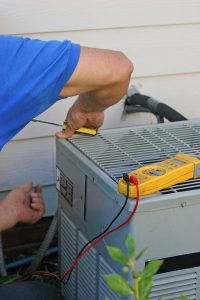 A common and major repair problem air conditioning systems run into is leaking refrigerant. Tiny holes along the copper refrigerant lines allow the refrigerant level in the system to drop, and that puts the entire air conditioner in jeopardy. Air conditioning systems are manufactured to run a specific charge (amount) of refrigerant. If that drops, it will not only lower cooling capacity, it will eventually inflict irreparable damage to the components, concluding with a burnt-out compressor.
A common and major repair problem air conditioning systems run into is leaking refrigerant. Tiny holes along the copper refrigerant lines allow the refrigerant level in the system to drop, and that puts the entire air conditioner in jeopardy. Air conditioning systems are manufactured to run a specific charge (amount) of refrigerant. If that drops, it will not only lower cooling capacity, it will eventually inflict irreparable damage to the components, concluding with a burnt-out compressor.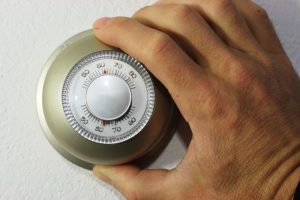 This is frustrating. The heat is rising outside, and you need your house cooled down. You go to the thermostat, make whatever adjustments are needed to get the air conditioner running—and then nothing happens. Or whatever happens doesn’t result in the comfortable house you expected.
This is frustrating. The heat is rising outside, and you need your house cooled down. You go to the thermostat, make whatever adjustments are needed to get the air conditioner running—and then nothing happens. Or whatever happens doesn’t result in the comfortable house you expected.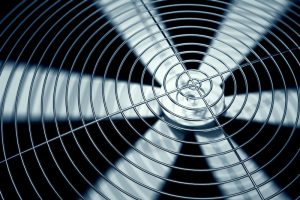 Air conditioners are complex pieces of machinery, so when anything in them breaks, it requires detective work to locate the cause. This is one of the reasons we recommend you turn to professionals only when you have an air conditioning system that isn’t working. Unless the problem is basic–like a tripped circuit breaker–it takes skilled technicians to find out what the specific malfunction is so it can be fixed.
Air conditioners are complex pieces of machinery, so when anything in them breaks, it requires detective work to locate the cause. This is one of the reasons we recommend you turn to professionals only when you have an air conditioning system that isn’t working. Unless the problem is basic–like a tripped circuit breaker–it takes skilled technicians to find out what the specific malfunction is so it can be fixed. We know you’re probably concerned about the performance of your air conditioning system over the next few months when our temperatures start to spike. Nobody wants to be caught with a busted AC on a roasting Texas summer day, and scrambling to get
We know you’re probably concerned about the performance of your air conditioning system over the next few months when our temperatures start to spike. Nobody wants to be caught with a busted AC on a roasting Texas summer day, and scrambling to get  We’re a full-service HVAC company, and that means we work with all heating and air conditioning systems. But because this is Texas, we handle more AC services. Air conditioners are used almost around the year here. Summer is still the height of the season, but ACs accumulate extra wear that they don’t in many other parts of the country. This makes it extra important to remember to schedule spring
We’re a full-service HVAC company, and that means we work with all heating and air conditioning systems. But because this is Texas, we handle more AC services. Air conditioners are used almost around the year here. Summer is still the height of the season, but ACs accumulate extra wear that they don’t in many other parts of the country. This makes it extra important to remember to schedule spring 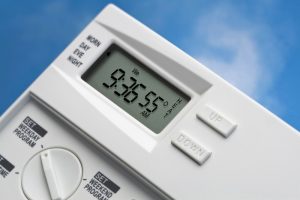 This isn’t a situation you want to run into with almost any device. But when you’ve got a hot day outside and you need to cool off your house, it can cause of jolt of panic if the AC turns on for just a moment and then shuts itself off.
This isn’t a situation you want to run into with almost any device. But when you’ve got a hot day outside and you need to cool off your house, it can cause of jolt of panic if the AC turns on for just a moment and then shuts itself off. We’re not about to reveal a major hidden secret of air conditioning care. The simple step to avoid repairs that we’re talking about is, indeed, simple, and any good HVAC contractor recommends it. Not all HVAC contractors can deliver on it—at least not with the best results—but we can!
We’re not about to reveal a major hidden secret of air conditioning care. The simple step to avoid repairs that we’re talking about is, indeed, simple, and any good HVAC contractor recommends it. Not all HVAC contractors can deliver on it—at least not with the best results—but we can!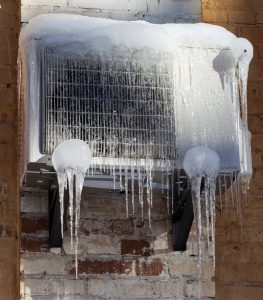 A residential air conditioner has a straightforward job: remove heat from a house using refrigerant and release the heat outside, cooling down the air inside the house so it can then be spread through the rooms. This process is called heat transfer, in that it shifts heat from one place to another. A good way to think of it your AC is as a pump that pumps out the heat from your house to make you feel cooler.
A residential air conditioner has a straightforward job: remove heat from a house using refrigerant and release the heat outside, cooling down the air inside the house so it can then be spread through the rooms. This process is called heat transfer, in that it shifts heat from one place to another. A good way to think of it your AC is as a pump that pumps out the heat from your house to make you feel cooler.